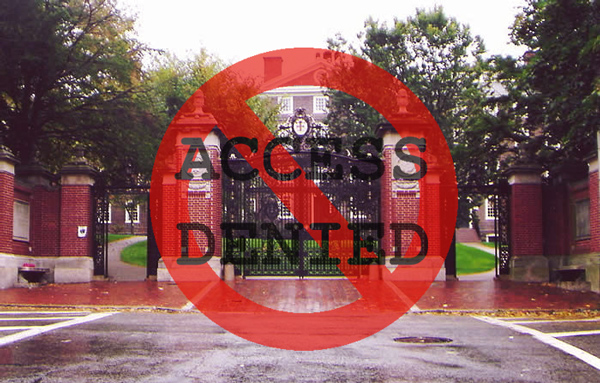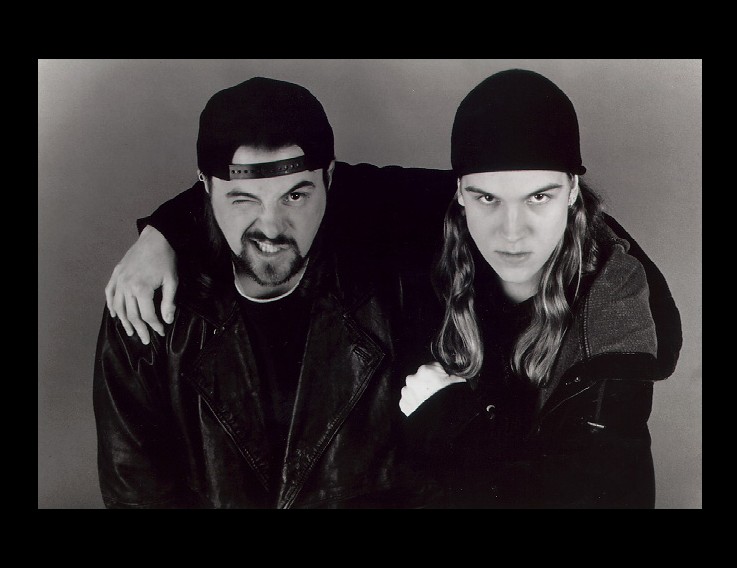For the shit genre!
Opening my notebook the morning after a night of woozy ambien scribbling is like opening a present: you never know what’s inside. Today there was a note that said, “Beckett—101-2. Shit genre.”
Here is the passage I noted. It’s from Samuel Beckett’s first play Eleuthéria, which was disowned by the Beckett Estate.
Dr. Piouk: What does he do?
Mme. Meck: (With pride) He is a man of letters.
Dr. Piouk: You don’t say! (Enter M. Krap. He reaches his armchair and cautiously sits down)
M. Krap: You were saying nice things about me, I feel it.
Mme. Meck: There isn’t anything the matter with her?
M. Krap: She is unharmed.
Mme. Meck: She is coming?
M. Krap: She’s getting ready for that.
Mme. Piouk: There was a time when you were unaffected.
M. Krap: At the cost of what artifice!
Dr. Piouk: You are a writer, Monsieur?
M. Krap: What gives you leave to–
Dr. Piouk: It can be felt in the way you express yourself.
Mme. Piouk: Where has she been?
Mme. Meck: She is going to tell us.
M. Krap: I will be frank with you. I was a writer.
Mme. Meck: He is a member of the Institute!
M. Krap: What did I tell you.
Dr. Piouk: What genre?
M. Krap: I don’t follow you.
Dr. Piouk: I speak of your writings. Your preferences were for what genre?
M. Krap: For the shit genre.
Mme. Piouk: Really.
Dr. Piouk: Poetry or prose?
M. Krap: One day the former, another day the latter.
Dr. Piouk: And you now deem your body of work to be complete?
M. Krap: The lord has flushed me out.
Dr. Piouk: A small book of memoirs does not tempt you?
M. Krap: That would spoil the death throes.
Mme. Meck: Admit that this is a bizarre way to treat guests.
Mlle. Skunk: Extremely odd.
The shit genre. I love that. I’m stealing that. Whenever someone asks me what genre I prefer I will tell them, “The shit genre, of course.” You’ve never heard of it? You must not know much about literature. (Like Beckett’s characters, I sometimes fantasize about getting sassy with “legitimate” types….)
March 31st, 2011 / 3:02 pm
Second Somewhat Bi- oh wait Semi- no it’s Biennial Grammar Challenge!
This is for fun.
This is a contest. It is taken from a homework assignment in David Foster Wallace’s Extremely Advanced Composition class at Pomona College. It was a creative nonfiction workshop.
The contest is, correct these sentences for what Wallace, at least, perceived as errors in mechanics, grammar, punctuation, syntax, idiom, and/or usage. You get a point every time you are the first person to correct an error in comments (by rewriting the sentence correctly), but I’m going to wait to get lots of answers in to reveal the answers, so don’t hesitate to tackle a sentence that someone else has already tried. You may make multiple guesses on the same sentence, and you can guess out of order. Some sentences may have more than one error. One point per error. Prize TBA.
Some of these are pretty basic. Some are very obscure and speak to Wallace’s particular peeves, some of which I don’t share. The point is to figure out what he thought was wrong with these. No use arguing with a dead man.
And I quote:
English 183D 10 March 2004
” . . . every such phrase anesthetizes a portion of one’s brain.”–G. Orwell
(1) It was the yuletide season like I had never seen it before.
(2) We were in Innsbruck, Austria and we could not find a place to stay the night.
(3) We passed by the inn.
(4) It has made its way into the mainstream of verbal discourse.
(5) Cross burning began in medieval times on the green hills of Scotland, where clans used them to rally their kin and kith against enemies.
(6) “Get used to it.” I said to myself.
(7) As the president is a Christian, he prays every morning.
(8) I can support this claim with quotes from several published sources.
(9) It consisted of only two brief 50-minute workshops which one speaker enticingly described as “therapy session sized.”
THIS IS WHAT REJECTION LOOKS LIKE

I just logged into the Brown application website to try to view my MFA rejection letter. It’s no longer there. I am wondering where it went. My status is simply “submitted” and no longer rejected. Could my rejection have been revoked? No, probably not. There is probably a demon in their system affording me this glimmer of false hope—like dreaming of your crush putting the moves on you. The first thing I actually thought was, “What am I going to tell my parents?” They are used to me always being “the best” and are far more invested in my success than I am. I told them not to get their hopes up. I put together a typo-filled portfolio the night before it was due because I was visiting my mom who was in the hospital from a suicide attempt and applying to grad school was the last thing on my mind. But I had an application waiver, so I sent it off with a statement that basically said, “I’m sorry this is bad. My life is a wreck right now.”
Luckily, I copy and pasted the rejection letter into my long poem before it disappeared:
READ MORE >
Anton LaVey on Writing

“There is a beast in man that needs to be exercised, not exorcised.”
“It has been said, ‘the truth will make men free.’ The truth alone has never made anyone free. It is only doubt which will bring mental emancipation.”
“Hair on a man’s chest is thought to denote strength. The gorilla is the most powerful of bipeds and has hair on every place on his body except for his chest.”
“When one sleeps on the floor one need not worry about falling out of bed.”
“I like raunchiness, not like in a biker-chick sort of a way, but like the girl can’t help it. Little bruises, a few hairs out of place, a little stain here and there.”
“Hopefully by bringing back burlesque, you’ll bring back the kind of body that’s round on top and round on bottom. I love cellulite and stretch marks!”
“You say it’s good to get a change of scenery. What scenery? New buildings? New cars? New freeways? New shopping malls? Go to the woods or a park? I saw a tree once. The new ones look the same, which is fine.”
“If a guest in your lair annoys you, treat him cruelly and without mercy.”
“I find greater companionship in inert figures, animals & speechless artifacts, for I can enjoy their presence & there is no psychic drain.”
“You cannot love everyone; it is ridiculous to think you can. If you love everyone and everything you lose your natural powers of selection and wind up being a pretty poor judge of character and quality. If anything is used too freely it loses its true meaning.”
“Do what you want as long as it’s paying off for you. But once it’s become a liability, then something is wrong and you better find out what it is.”
“Don’t let that little pyramid with the bright eye fool you. That’s to draw your attention away from the real thing: the big trapezoid beneath it.”
“To be loved, feelings must be rationed. To love, the doors of hysteria, fantasy, and madness may be flung open.”
Fear and Bravery of Pseudonyms
 At the AWP bookfair, Michael Kimball showed me a copy of this pretty little book, Normally Special, by a writer called xTx. I asked Michael something like, “what’s the deal with the name?” He said she was a writer who publishes stuff under her real name, but also uses this pseudonym when she writes stuff she doesn’t want her family to read or kids to read. I asked Michael if anyone knew who the writer was and he said maybe Roxane Gay, since she had published the book, but maybe nobody else knew. “I don’t think I’d want to read any of that other stuff anyway,” he said.
At the AWP bookfair, Michael Kimball showed me a copy of this pretty little book, Normally Special, by a writer called xTx. I asked Michael something like, “what’s the deal with the name?” He said she was a writer who publishes stuff under her real name, but also uses this pseudonym when she writes stuff she doesn’t want her family to read or kids to read. I asked Michael if anyone knew who the writer was and he said maybe Roxane Gay, since she had published the book, but maybe nobody else knew. “I don’t think I’d want to read any of that other stuff anyway,” he said.
Tiny back story: When I was twelve or thirteen I learned how to code HTML so I could build websites. It was 1999 and compared to now, the internet was pretty barren place. I built a website for my church’s Youth Group because I was really into that kind of thing, a fan site for Sheryl Crow because I was really into her first two albums, and I published my own stories on a Geocities page because I wanted someone to read things I’d written, just so long as I didn’t have to answer to it.
Another story: A few years ago, a mentor of mine from New Orleans came to visit New York and we had coffee. He was the one who got me to move to New York in the first place, the one who told me to go to grad school, the one who made me excited about creative nonfiction. He published a very autobiographical novel about his childhood in Louisiana and told me his mother had a hard time with the way the mother character was represented in the book. Over our coffee, he asked me what I was working on and I said, somewhat embarrassed, that I was working on a memoir. He asked me if my family knew and I said not really and he said, “Don’t talk to them about it until it’s done. They’ll change your memories, they’ll change your story without even trying.” (A loose quote, of course, but you get the picture.) Most importantly, he told me, You can’t write a good story if you’re worried about what someone is going to think about it, if you’re worried about hurting someone’s feelings. READ MORE >
An open letter to Kevin Smith (aka Silent Bob) about silence and writing-as-shitting
Dear Kevin Smith,
You have a fucking radio show? That’s kind of hilarious because you were always the silent one. You were Silent Bob. You went from being pure body to pure voice. Why’d you do it, man? There was something philosophical about your silence, they way you were so expressive without saying anything. We all liked to imagine what you were thinking, how you were perceiving everything that was going on around you. There was a profound quality to your sparse interjections (because you never spoke, because of the scarcity of your words). The law of economics says that when demand exceeds supply, value increases. Maybe I should shut up. Maybe I should retreat into silence like you once did. Maybe then—only then—will people give a shit about any of this. Any of these words.
When you did speak, we felt lucky to be graced by your wise words. Because you never spoke, we felt like you were enlightened, like you were beyond language, like language was something the petty people did, and you did not need it. You were above all that, the way spiritual gurus are above food, the way they no longer need to satiate those earthly desires. You didn’t need to feed the part of the body that longs for recognition. You were a watcher, an observer. Everyone around you was always blabbering on and on, but you didn’t feel the need to fill up space in the same way. You know, most people feel anxious about silence. It’s the hardest thing, to live in silence. You can’t just “be” next to someone. It makes you totally nuts to feel like you don’t know what they’re thinking. Maybe their silence means hatred. Maybe I’m fucking boring. So we talk on and on because we are afraid, because we need to know where the other person is at, because silence can mean anything and we need our interactions to be anchored in certainty.
Three Types of Language: (Slogan, Fact and Thought Language)

There seems to be three types of language or ways of writing or speaking: slogan, factual and thoughtful.
Slogan: slogan language when a person speaks in cliches or ritualistic statements or as we say today, “talking points.” Cliché language can be found in romance or fantasy writing, and in most movies. We all know what cliches are, having scenes when two lovers are standing in the rain, having a life-affirming ending when the dying dad tells his kids that he loves them, the person who was evil the whole story breaks down and becomes a good person. There are a lot of abstract lines about ‘hearts’ and ‘souls.’
Heidegger called this ‘idle talk.’ Heidegger describes idle talk as gossip or that the talk has no Being, the Being of the talk is already disclosed. Which means what is said, does not matter and everyone knows it. And this essence of it not mattering makes people feel safe and secure.
I would say that slogan language/idle talk is talk is several things: first for the person who uses slogan language it is safe because they are speaking in commonly accepted parts of speech, that they assume are safe and normal. Second it makes the speaker feels like they are performing a ritual, that they are part of the society at large when they say these commonly used sentences. Third slogan speech is commonly connected with groups like political parties or social groups. The republican party currently has its phrase, “budget cuts.” A liberal might say, “Homosexuals have the right to marry.” A vegan might say, “Killing animals is wrong.” Christians will say, “God says abortion is wrong.” These are common slogans or talking points that these groups have. A follower of these groups carry these slogans like objects one would carry in their bookbag, when it is time, they take out the slogan and put it on the table for everyone to look it and say, “This slogan is me.”
The Chemistry of Things: Shaping a Short Story Collection
I am trying to find the right shape for a short story collection. The more I try to put together a cohesive body of work, the more I realize that organizing a short story collection is a matter of chemistry, of finding the perfect combination of elements that will create new matter. Even though my collection is largely out of my hands at this point, the shape of it has been in flux. I’m also trying to figure out what work to collect for a second and third collection so I’m looking both forward and backward. I wish there was some kind of instruction manual for this. When I first began assembling my full length collection, I had no idea what I was doing. I still feel that way. Part of the problem is that I have a lot to choose from. I’ve been writing and publishing since 1999, using four different names. Most of my earlier work wouldn’t be appropriate for a collection of the sort I am trying to assemble but it’s still there and some of it still worth considering.
I keep coming back to the same questions. What stories should I include? In what order should I place the stories? Why am I making these choices? How do I want readers to feel while they’re reading the collection? And after? How do I make readers fall in love with the book? How do I make them see what I’m trying to say? On the one hand, I could arrange a collection by theme because there are a few dominant themes in my writing but would that make the collection too uneven, not diverse enough in tone? I could arrange a collection with stories that all have female narrators or male narrators or that are written in the first person or second person. I could take a kitchen sink approach (my first attempt) to try and demonstrate the range of my writing. I just don’t know.
Aubade 7
I am breaking spring and have finally decided, like many others, the morning is the capital time to write:
1. Mind is wire-scrubbed clean or the opposite, LSD-like dreams. (I recently awoke at the foot of the bed, on the floor, wrapped in residue of twisted thoughts/a past nursing school instructor squawking me down/sweaty blankets). Both states of mind are useful.
2. Stomach is empty. A full stomach makes for naps, not crisp writing. Breakfast is bullshit, as we know.
3. 1,3,7-trimethylxanthine nudges the nerve impulses with a knife and goes Kelly Clarkson on your dopamine. 1,3,7-trimethylxanthine is caffeine. Coffee is morning. Like with running or mint-thinning or higher math, caffeine can assist you.
11. Unless you are Marguerite Duras, you are probably not drunk (though possibly hungover, an odd state not always detrimental to writing).
4. Birds cough. Much better chance of seeing coyotes.
4. Due to tidal friction, nutation, and polar motion, the internet doesn’t work well in the early morning hours. This is a good thing.






